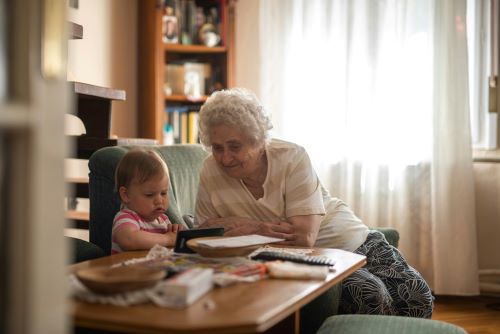 Bringing up children takes work, often a lot of work. “It takes a village to raise a child” is an African proverb that means an entire community of people must interact with children for those children to grow in a safe and healthy environment.
Bringing up children takes work, often a lot of work. “It takes a village to raise a child” is an African proverb that means an entire community of people must interact with children for those children to grow in a safe and healthy environment.
Sweden is a small country that has over generations built a society where citizens are taken care of from cradle to grave through its taxpayer-funded social welfare system. In a world first, Sweden has recently extended paid parental leave to include grandparents.
In Sweden, parents already have enviable parental entitlements they can access. Between the parents they can get a paid parental benefit that can extend to 480 days (about 16 months) per child between the parents. Of those days, 390 days are calculated on a person’s full income (about 80%), the remaining 90 days are paid at a fixed rate of 180 kronor (about $NZ28) per day.
Fifty years ago, Sweden was the first country in the world to introduce paid parental leave for fathers and not just mothers. Other enviable benefits for parents include the ability to work reduced hours until the child is 8 years old, and government employees can get those reduced hours until the child turns 12.
Under the recent change to the law, grandparents can also be paid to step in to care for their grandchildren for up to 90 days for the child’s first year. Parents have to transfer some of their parental leave allowance to the child’s grandparents. A parent couple can transfer a maximum of 45 days to others while a single parent can transfer 90 days.
Commenting on Sweden’s recent change, Dr Asha Sundaram, a Senior Lecturer in the Department of Economics at the University of Auckland, said “Research suggests that children who spend time with grandparents have better behavioural and cognitive outcomes. It's also beneficial to grandparents, and not only that, there's evidence that children who spend time with extended family also have better health outcomes."
How does New Zealand compare? Eligible parents can receive paid parental leave payments for up to 26 weeks. These have recently been increased from 1 July with the maximum weekly rate for paid parental leave going from $712.17 to $754.87 gross per week. The minimum parental leave payment rate for self-employed parents has also increased from $227 to $231.50 gross per week.
“We know families are doing it hard right now", Workplace Relations and Safety Minister Brooke van Velden said announcing the increases. "This coalition Government is committed to making sure that families and parents receive the support they need to give their new child the best start to life. Paid parental leave is one way that this is done."
At the other end of the scale, the United States is one of only a few countries that does not have a national paid maternity leave policy. The federal law provides eligible workers with up to 12 weeks of (unpaid) job-protected leave per year. At a state level, just 13 states and Washington DC provide some paid parental leave, but generally only for 3 months.
The Retirement Commission reports that already, one third of New Zealand’s workforce is aged 55+. New Zealand has one of the highest rates of people aged 65+ still working at 24%. This compares to the UK rate of 10%, Australia 12%, USA 19%, Japan 20% and Iceland 35%. Statistically, in New Zealand there are less grandparents that can assist bringing up a grandchild due to work commitments. If New Zealand were to consider extending parental leave to include grandparents, the first step would be to provide job protection for those temporarily giving up work to care for their grandchild. Like parents taking parental leave, the employer could be obliged to keep the grandparent’s job open for them while they take grandparental leave, unless it is a key position in the business, or the role becomes redundant? Consideration could also be given to the grandparents sharing in the entitlement to paid parental leave the government already provides? Both seem low cost ideas.
In New Zealand, Maori have whakatauki that express a similar sentiment to the Swedish system. He waka eke noa - a canoe which we are all in with no exception. This whakatauki implies that ‘we are all in this together’. He aha te mea nui o te ao? He tangata! He tangata! He tangata! What is the most important thing in the world? It is people! It is people! It is people! Our children are our future – should we be doing more to assist the village to give them the best start? Read now....

